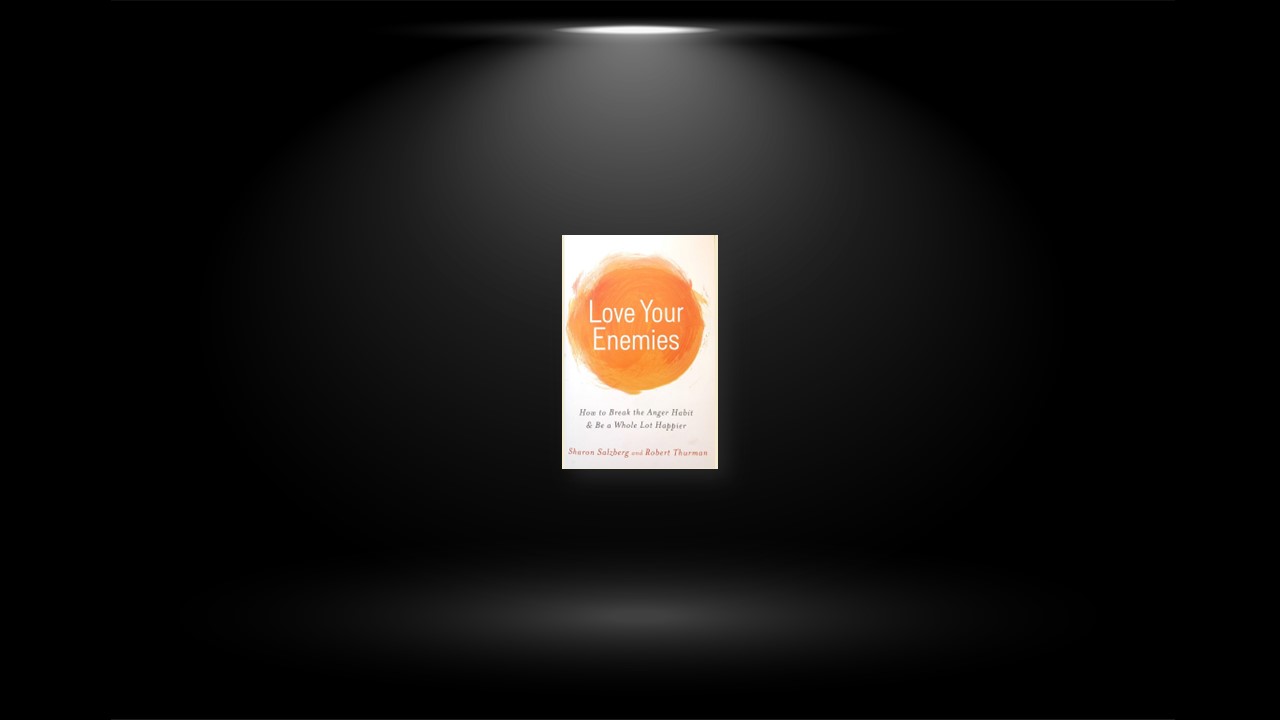Enemy-making
We have a strong urge to dichotomize human beings, to separate them into opposing categories. Stereotyping is an evolutionary mechanism designed to enhance survival, a form of shorthand for getting by in a dangerous world. We try to manage the messiness of life by creating an orderly zone of recognizable types characterized by certain traits that are associated, however loosely. Then we generalize our preconceived typologies to all members of a class or group or nation.
The problem is that once we have organized everyone into tidy categories, we may be unwilling to look beyond those labels. We commonly designate our own group as the norm, the Ins, while everyone else is the Other. Designating our own family or group as the standard, while assigning everyone else to categories that are somehow inferior, boosts our feeling of self-worth. But it also locks us into the Us-versus-Them mind-set, virtually assuring us an unending supply of enemies.
Familiarity can stop this cycle of enemy-making. A recent study of prejudice revealed that mutual trust can catch on and spread between different racial groups just as quickly as suspicion does.
Through something known as the “extended-contact effect,” amity travels like a benign virus through opposing groups. This effect is so powerful that, according to researchers at the University of Massachusetts, bias can evaporate in a matter of hours. Peaceful exposure to the Other, the “enemy,” is key. As just one example, a Palestinian-Jewish summer camp known as Oseh Shalom—Sanea al-Salam enables Jewish and Arab youths and their families to spend time together in shared activities and dialogue amid natural surroundings. Such organizations offer clues to how larger-scale initiatives might be devised to break down the Us-versus-Them stockade.
We have to be able to enlarge the perspective with which we view the world if we hope to become truly empathic. Think of the Dalai Lama learning about Christianity from Desmond Tutu and Archbishop Tutu learning about Buddhism from the Dalai Lama. Neither of these spiritual masters appears to be out to convert the other, nor do they need to agree in order to feel connected. Each maintains strong loyalty to his own traditions, creed, and people, but they are very good friends who are not constrained by the cult of either/or.
Taking action toward the good is the best way to expand our attention and dissolve the boundary of Us-versus-Them. Even simple things like working in a soup kitchen and helping feed the hungry, or having thoughtful conversations with the people next door, can ease feelings of separation from those who are unlike us on the surface. By aligning ourselves with issues larger than our own selfish concerns—“turning off the Me and turning on the We,” as Jonathan Haidt puts it—we transcend alienation through simple human contact. In the spirit of “Love thy neighbor as thyself,” more and more people start to seem like our neighbors, and we learn in real terms how to love them.
The Power Of Forgiveness
Like any form of healing, forgiveness has its own timetable and should not be rushed or engineered. We cannot force ourselves to “forgive!” any more than we can force ourselves to “let go!” What we can do is create the conditions in which forgiveness is likely to happen, beginning with full acknowledgment of the situation and how we are feeling. Until we are honest with ourselves about our pain or resentment, we cannot hope to leave it behind. Weaned on the notion that forgiveness is a selfless act executed for others at our own expense, we forget that compassion begins at home and that we must attend to our own wounds before we can open our hearts to others.
Many people confuse forgiveness with selflessness and wonder why they can’t seem to manage it. In attempting to transcend their own experience and “do the right thing,” many well-meaning people discover that they cannot forgive if they leave themselves out of the equation. When we understand forgiveness as a compassionate act toward ourselves that we extend to others as we’re able, we begin to grasp what Helen Whitney means by forgivenesses in the plural. Every situation requires its own skillful resolution. If we wait until our motives are completely pure and residual feelings are a thing of the past, chances are we will forgive little in our lives. On the other hand, when we can see forgiveness as a survival tool, as well as a spiritual act, our requirements and self-expectations shrink to more realistic proportions.
Whether or not we hold that some acts are unforgivable, there is no doubt that some are so consequential that they can’t easily be included in any conventional approach to forgiveness. This does not mean that we can’t get beyond the actions of our enemies. As one Holocaust survivor put it, “I will never forget, and I will never forgive. But I brought up my children to love and not to hate.”
After having survived that kind of trauma, the commitment to teach your children to love instead of hate is testimony to inherent human goodness.
Self-Preoccupation or Loving Oneself
Self-preoccupation is not the same thing as loving oneself. Self-preoccupation is the antithesis of what the Dalai Lama means when he says that he has never met anyone he would consider a stranger. When we are fixated on ourselves—which usually means being fixated on what we think is missing in ourselves or our lives—existence itself becomes our adversary. Instead of connecting with others, we hardly hear them above the din of our internal monologue: What do they think about me? Do they like me? Do they like me more than they’ve ever liked anyone they’ve met before? Oh no, they hate me. I said something stupid. This is bad. Locked inside this self-reflecting chamber, we cannot give, receive, or connect. Instead, our attention is focused on bolstering our own wobbly self-image and assuaging bleak feelings of emptiness.
When we genuinely connect with the world within us and around us, this burden is lifted. That is why it’s so important to confront the many voices of the saboteurs, naysayers, and critics residing within our own minds if we hope not to make an enemy of others. Self-obsession breeds anger and contempt in others, inevitably leading to conflict.
The poet Wendell Berry, in defining the community as “the smallest unit of health,” said that “to speak of the health of an isolated individual is a contradiction in terms.” Berry further defines a community as “a place and all its creatures.” All the creatures that make up a community are interconnected. The healing of enmity and fear, then, is not something done at a remove from others, by oneself and for oneself. Instead, it calls for the recognition that we each exist as part of a greater fabric, a greater whole.
When we’re mindful, life shows us how connected, in fact, we really are. It is apparent through all of life’s twists and turns—when we face difficulties, when we confront the fragility of circumstances, when we share our own happiness with others, when we are willing to meet a stranger in a new way.
Looking for the Good
Kindness is a potent tool for transformation, since it requires us to step outside our conditioned response patterns. Ordinarily, we’re so preoccupied with ourselves and defended against the Other—especially in these terrorist, orange-alert times—that we feel continually threatened and anxious. We forget how connected to one another we are, and this perceived division feeds our antipathy and feelings of alienation. This limited perspective prompts us to respond in ways that are less creative, reducing the possibilities for happiness.
Our default position seems to be the belief that people are fixed entities rather than ever-changing beings with a whole range of possible behaviors. Seeing others in all their complexity requires emotional intelligence; it represents a major step in psychological development. Our first lesson in emotional complexity comes when we are children. At first we see our parents as all good and then later as all bad. As we mature, ideally, we arrive at an understanding that the truth lies somewhere in the middle: our parents are neither all good nor all bad but a mixture of both.
Unless we can accept this inherent ambiguity, we will miss the complexity of other people, as well as the ability to be flexible in our attitudes toward them. Even when we can’t seem to find something good about someone, we can remind ourselves of what we have in common. Every human being is vulnerable to change, loss, and insecurity. And every human being wants to be happy, regardless of how misguided their efforts might seem to be.
In the Koran, God tells humanity, “We made you …into nations and tribes that ye might know one another.” This affirmation of the oneness of humanity, despite the distinctions of nation and tribe, expresses the understanding that such distinctions should lead to a better understanding of each other, not enmity. Just as we could not practice patience without annoyance or compassion without enemies, we could not do away with duality, Us versus Them, without significant differences to overcome.
No More Enemies
Generosity breaks down the Us-versus-Them divide. It acknowledges our shared human bond. In one of the Buddha’s discourses, he instructed a king on enlightened leadership: “To be a good leader, you have to be just and generous.” The king was just, but he neglected being generous, with the result that his people were going hungry. Because they were hungry, they had started stealing, and because they were stealing, the king had begun to build more jails. What should he do? the king asked. “You forgot something basic,” the Buddha said. “If you don’t want people to steal, be generous. Give them food.”
Generosity goes hand and hand with lovingkindness, because in that moment of giving we feel goodwill toward those who are receiving; we feel a sense of oneness with them, rather than alienation from them. Generosity goes hand in hand with compassion when we realize that nothing happens in isolation and that we are all responsible for the well-being of one another. Generosity goes hand in hand with sympathetic joy as we rejoice in the happiness of the recipient rather than feeling somehow impoverished or diminished because of our offering. Generosity goes hand in hand with equanimity, as we are willing to let go of our possessions without resistance or regret.
Tenderhearted concern for others does not mean being foolish. For compassion to be real, it must be paired with wisdom. Charity runs the risk of patronizing the recipient, subtly setting up a one-up, one-down relationship that perpetuates feelings of separation. We need to understand the great web of interconnection, and then we will be moved to help out of our awareness that we are all in this life together. When we have overcome our enemies, inner and outer, we practice generosity as an outpouring of the happiness we have found.


